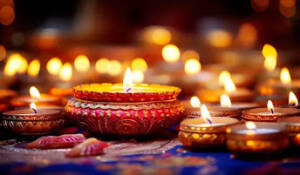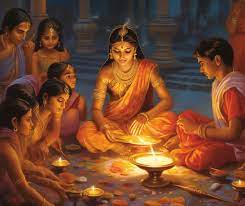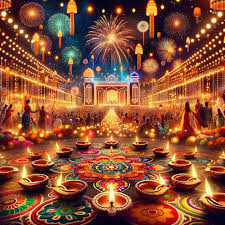The Spiritual Significance of Diwali: Illuminating the Path to Enlightenment
Diwali, also known as Deepavali, is one of the most vibrant and widely celebrated festivals in India. Often referred to as the Festival of Lights, Diwali is more than just an occasion for festivities and feasts; it holds deep spiritual significance that transcends cultural and religious boundaries. The festival, celebrated by millions, symbolizes the triumph of light over darkness, good over evil, and knowledge over ignorance. This blog explores the spiritual dimensions of Diwali, highlighting its profound impact on individuals and communities.
RX REJUVENATE, THE BEST SKINCARE CLINIC LOCATED IN NORTH DELHI IS ONE OF THE GREAT SUPPORTER AND FOLLOWER OF SPIRITUAL SIGNIFICANCE OF DIWALI WHICH LEADS THE PATHWAY TO NATION’S EMPOWERMENT AND ENCOURAGING US TO DELIVER MORE EFFICIENT AND TARGETED RESULTS TO OUR CLIENTS.
The Origin and Mythology
The spiritual essence of Diwali is deeply rooted in its mythological origins. The festival commemorates the return of Lord Rama to Ayodhya after a 14-year exile, during which he vanquished the demon king Ravana. This victory is celebrated as a triumph of righteousness (dharma) over unrighteousness (adharma). The people of Ayodhya lit oil lamps to welcome Rama back, symbolizing the dispelling of darkness and the ushering in of light.
In addition to the story of Rama, Diwali also celebrates the victory of Lord Krishna over the demon Narakasura. The festival is also associated with the goddess Lakshmi, the embodiment of wealth, prosperity, and wisdom. According to legend, Lakshmi emerged from the churning of the ocean (Samudra Manthan) and visited the homes of devotees during Diwali, bringing with her blessings of abundance and well-being.
 Symbolism of Light
Symbolism of Light
At its core, Diwali is a celebration of light. The lighting of diyas (oil lamps) and candles is symbolic of the illumination of the soul and the dispelling of ignorance. In Hindu philosophy, light represents knowledge and enlightenment, while darkness symbolizes ignorance and spiritual blindness. By lighting lamps, devotees seek to illuminate their inner selves, dispel negative energies, and cultivate wisdom and understanding.
The act of lighting lamps during Diwali also reflects the practice of self-realization and inner transformation. As the lights flicker and glow, they remind us of our own inner light, which guides us through the challenges of life. This illumination serves as a metaphor for the spiritual awakening that leads to higher consciousness and enlightenment.
The Significance of Cleanliness and Renewal
Diwali is a time of thorough cleaning and decoration of homes, symbolizing the preparation for the arrival of Goddess Lakshmi. The emphasis on cleanliness is not just physical but also spiritual. It represents the process of clearing the mind and heart of impurities and negativity, making way for positive energy and divine blessings.
The festival also marks a time of renewal and fresh beginnings. By performing rituals, making resolutions, and engaging in charitable acts, individuals seek to start anew, leaving behind past grievances and embracing a path of spiritual growth and harmony. The ritual of lighting lamps and fireworks signifies the cleansing of past sins and the pursuit of spiritual clarity.
 Rituals and Worship
Rituals and Worship
Diwali involves a series of rituals that hold deep spiritual significance. The Lakshmi Puja, performed on the third day of Diwali, is dedicated to the goddess Lakshmi and involves offerings of sweets, flowers, and prayers. This puja is performed with the belief that Lakshmi blesses her devotees with prosperity, wisdom, and success.
Another important ritual is the Ganesha Puja, which honors Lord Ganesha, the remover of obstacles. By worshiping Ganesha during Diwali, devotees seek his blessings for overcoming challenges and embarking on new ventures with confidence and clarity.
The festival also includes the worship of Lord Dhanvantari, the god of medicine, to seek good health and well-being. The practice of giving gifts and performing acts of charity during Diwali underscores the importance of compassion and generosity in spiritual practice.
Community and Unity
Diwali is not just a personal celebration but also a community event that fosters unity and togetherness. The festival brings families, friends, and communities together to celebrate, share meals, and exchange gifts. This communal aspect of Diwali reinforces the values of love, compassion, and solidarity.
The practice of lighting lamps in public spaces and participating in community events promotes a sense of collective spiritual growth and communal harmony. By coming together to celebrate Diwali, individuals reinforce their bonds with others and contribute to a shared sense of spiritual well-being.
 Contemporary Spiritual Reflections
Contemporary Spiritual Reflections
In the modern context, Diwali serves as a reminder of the timeless spiritual principles that guide human life. The festival encourages individuals to reflect on their personal journeys, assess their spiritual progress, and renew their commitment to higher ideals. It is an opportunity to embrace mindfulness, practice gratitude, and seek deeper connections with oneself and others.
In an era where materialism and distractions often overshadow spiritual pursuits, Diwali offers a chance to reconnect with the core values of love, wisdom, and self-realization. The festival’s rituals and traditions provide a framework for personal and collective spiritual growth, reminding individuals of the importance of inner light and enlightenment.
Conclusion
The spiritual significance of Diwali extends far beyond its outward celebrations. It is a profound reminder of the triumph of light over darkness, wisdom over ignorance, and good over evil. Through its rich mythology, symbolic rituals, and communal practices, Diwali encourages individuals to embark on a journey of spiritual awakening and personal growth.
As we celebrate Diwali, let us embrace its deeper meanings and allow its light to guide us towards greater understanding, compassion, and inner peace. By reflecting on the festival’s spiritual significance, we can illuminate our lives and contribute to a world filled with positivity, harmony, and enlightenment.


